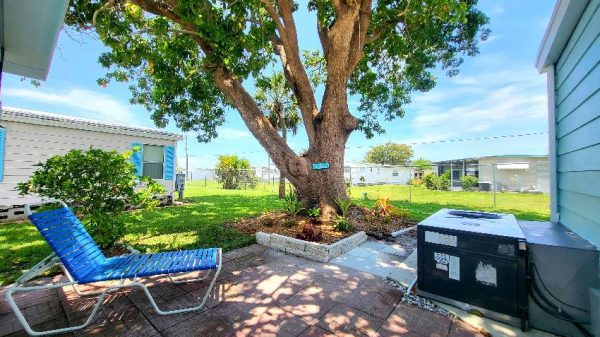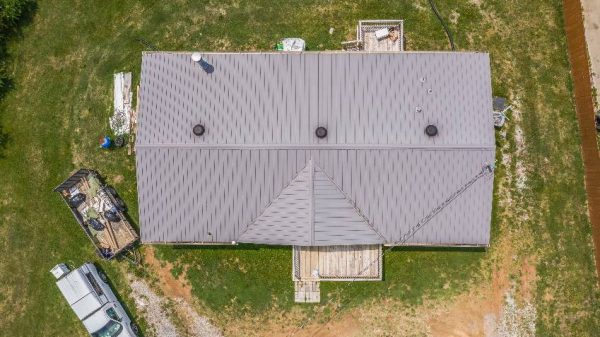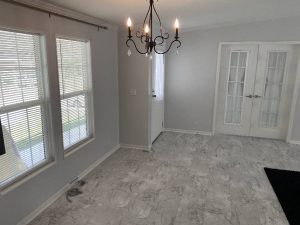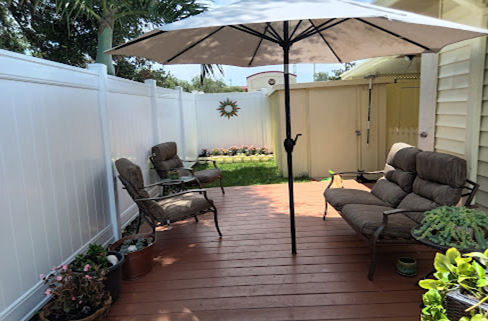Table of Contents
Maintenance Tips for Your Mobile Home
Summer is here, bringing with it longer days, warmer weather, and a need for extra care for your mobile home.
Just like any home, a mobile home requires regular maintenance to stay in top shape, especially during the hot summer months. Proper summer maintenance can help prevent costly repairs, improve energy efficiency, and ensure a comfortable living space for you and your family.
In this expanded guide, we’ll dive deeper into the essential tips to help you maintain your mobile home and keep it cool, clean, and ready for the season.
1. Inspect and Clean Your Air Conditioning System
Your air conditioning system is one of the hardest-working components of your home during the summer, and it’s crucial to ensure it runs efficiently. Start by checking your HVAC filters; dirty or clogged filters can cause your air conditioner to work harder, leading to higher energy bills and potential breakdowns. Replace or clean filters every 30-60 days, depending on usage and the manufacturer’s recommendations.
Next, inspect your vents and ducts for any dust, debris, or blockages. Use a vacuum to clean vent covers and remove any visible dust. If your system isn’t cooling as it should, consider hiring a professional to inspect the ductwork for leaks or damage. Duct cleaning can significantly improve air quality and airflow, making your home cooler and more energy-efficient.
Finally, if your air conditioning unit is older, you might want to consider having it serviced by a professional technician. Routine maintenance, such as checking the coolant levels, lubricating moving parts, and inspecting the compressor, can help prevent costly repairs down the road.
2. Check for Leaks and Seal Gaps
Leaks and gaps can be a significant source of energy loss, especially in a mobile home. During the summer months, hot air can infiltrate your home, causing your air conditioner to work overtime. Inspect all windows and doors for cracks or gaps that could allow warm air to enter and cool air to escape.
Use weatherstripping or caulk to seal any leaks. Make sure to check around the edges of doors and windows, as well as at the joints and seams where different materials meet. Don’t forget to examine the skirting around the base of your mobile home. Skirting helps insulate your home and prevents pests from getting in. Ensure that there are no holes or damage that could compromise its effectiveness.
Consider installing thermal curtains or blinds to help block out the sun’s heat during the hottest parts of the day. Reflective window film is another great option that can help keep your home cooler by reflecting sunlight away from the windows.
3. Inspect and Clean the Roof
Your mobile home’s roof takes a beating during the summer months, with intense sunlight, heavy rain, and sometimes hail all taking their toll. Inspect your roof for any signs of damage, such as cracks, leaks, or missing shingles. Pay close attention to areas around vents, chimneys, and skylights, as these are common places for leaks to develop.
If your roof is flat, make sure there is no pooling water, which can lead to leaks and water damage. Clean off any debris, like leaves or branches, that may have accumulated over the spring. Debris can trap moisture against the roof, leading to mold and mildew growth or even structural damage.
Consider applying a reflective roof coating designed specifically for mobile homes. Reflective coatings can reduce heat absorption, keeping your home cooler and reducing your air conditioning costs. Plus, they protect your roof from the elements, extending its lifespan.

4. Maintain Your Exterior
Summer is the perfect time to give your mobile home’s exterior some attention. Cleaning your siding can remove accumulated dirt, mildew, and grime, making your home look fresh and new. Use a soft-bristle brush or a power washer on a low setting to clean the siding, and be sure to use a mild detergent that won’t damage the material.
If you notice any peeling paint or faded areas, consider repainting or touching up these spots to protect the siding from further damage. Paint acts as a barrier against moisture and UV rays, which can degrade materials over time.
Don’t forget to trim trees and bushes around your mobile home. Overgrown branches can scrape against your siding or roof during storms, causing damage. Additionally, keeping foliage trimmed improves airflow around your home, helping to keep it cooler in the summer heat.
5. Check Your Plumbing
Summer can place extra strain on your plumbing system, especially if your area experiences drought conditions or if your water use increases during the hotter months. Inspect your pipes for any leaks, cracks, or corrosion, particularly around joints and connections. Even small leaks can lead to water damage, mold growth, and increased utility bills.
Test all outdoor faucets and connections to ensure they are working properly and check for any leaks. If you have an irrigation system for your lawn or garden, inspect the lines and sprinkler heads for damage. Repair any issues promptly to conserve water and prevent leaks from causing more significant problems.
You should also check your water heater to make sure it’s functioning efficiently. Consider lowering the temperature setting to save on energy costs during the summer months when the ground water is warmer, reducing the amount of work your water heater has to do.
6. Protect Against Pests
Summer is peak season for pests, including ants, termites, mosquitoes, and rodents, all of which can make their way into your mobile home if given the chance. Inspect your home’s exterior for any cracks, gaps, or holes that could serve as entry points for pests, and seal them with caulk or other appropriate materials.
 Make sure all windows and doors have proper screens and keep them closed to prevent insects from getting inside. Check for gaps around pipes, vents, and utility lines that enter your home. Use steel wool or caulk to seal these gaps and prevent rodents from chewing through.
Make sure all windows and doors have proper screens and keep them closed to prevent insects from getting inside. Check for gaps around pipes, vents, and utility lines that enter your home. Use steel wool or caulk to seal these gaps and prevent rodents from chewing through.
Consider using natural pest repellents, like citronella or peppermint oil, around your home’s perimeter. Planting herbs such as basil, mint, or lavender can also help deter pests and add a pleasant fragrance to your outdoor space.
7. Test Smoke Alarms and Carbon Monoxide Detectors
Your home’s safety features, such as smoke alarms and carbon monoxide detectors, are vital year-round, but it’s particularly important to check them during the summer. This is the time when people tend to use more electrical devices, grills, and other equipment that can pose a fire risk.
Test all smoke alarms and carbon monoxide detectors to ensure they are functioning properly. Replace the batteries at least once a year, or more frequently if needed. Ensure you have a working fire extinguisher accessible in your kitchen, garage, or other key areas.
8. Maintain Outdoor Areas
Outdoor spaces, like decks and patios, are popular hangouts during the summer months, so give them some TLC. Check for any signs of damage or wear, such as loose boards, nails, or railings. Make necessary repairs to keep these areas safe and functional.
Repaint or seal wood surfaces to protect against summer sun and rain. This not only enhances the look of your outdoor space but also prevents wood from warping, rotting, or splintering.
Make sure outdoor furniture is in good condition, and store or cover it when not in use to extend its lifespan. Clean cushions and surfaces to remove dirt, pollen, or mold that may have accumulated.
9. Plan for Extreme Weather
Summer often brings severe weather, including thunderstorms, hurricanes, and high winds. It’s essential to be prepared for these events, especially if you live in an area prone to extreme weather.
Ensure that your mobile home is anchored properly. This is a critical safety measure that can prevent your home from shifting or overturning in high winds. If you’re unsure about the condition of your anchoring system, consider having it inspected by a professional.
Assemble an emergency kit with essentials like water, non-perishable food, flashlights, batteries, and a first aid kit. Know the safest place to take shelter during a storm, and have an evacuation plan in place if needed.
10. Keep Your Home Clean and Clutter-Free
A clean home is not just aesthetically pleasing; it’s also safer and more energy-efficient. Decluttering can improve airflow and make your home feel cooler and more spacious. Dusting, vacuuming, and deep cleaning regularly will help prevent allergens and pests from making themselves at home.
Consider using light, breathable fabrics for curtains and bedding to keep your home cool and fresh. Swap out heavy drapes for sheer curtains that let in natural light while keeping out the heat.
Enjoy a Safe and Comfortable Summer!
By following these expanded summer maintenance tips, you can ensure your mobile home stays cool, comfortable, and in excellent condition throughout the season. Regular care not only protects your investment but also enhances your quality of life, allowing you to enjoy the summer to the fullest!
Enjoy a Safe and Comfortable Summer!

 Your home’s safety features, such as smoke alarms and carbon monoxide detectors, are vital year-round, but it’s particularly important to check them during the summer. This is the time when people tend to use more electrical devices, grills, and other equipment that can pose a fire risk.
Your home’s safety features, such as smoke alarms and carbon monoxide detectors, are vital year-round, but it’s particularly important to check them during the summer. This is the time when people tend to use more electrical devices, grills, and other equipment that can pose a fire risk.